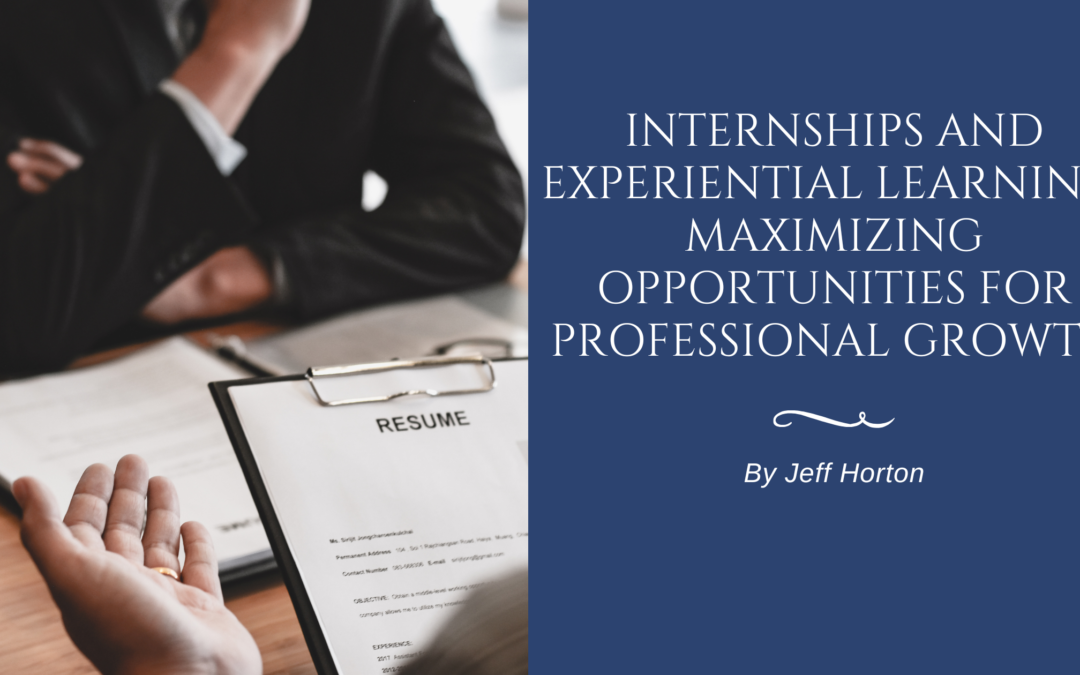Internships and experiential learning opportunities are pivotal in shaping one’s professional journey. They provide valuable hands-on experience, industry insights, and the chance to develop essential skills. Here is the significance of internships and experiential learning and discuss strategies for maximizing these opportunities for professional growth.
Real-World Application of Knowledge:
Internships and experiential learning allow students to apply their theoretical knowledge in real-world settings. These experiences bridge the gap between academia and industry, giving students a firsthand understanding of how concepts and theories translate into practice. This practical application enhances their understanding, problem-solving skills, and adaptability, preparing them for future professional endeavors.
Industry Exposure and Networking:
Internships provide invaluable industry exposure and networking opportunities. Working alongside professionals in the field allows students to gain insights into the industry’s inner workings, culture, and expectations. Building relationships with supervisors, mentors, and colleagues during internships can lead to future job prospects and mentorship opportunities. Networking in a professional setting helps students expand their professional network, opening doors to potential career opportunities.
Skill Development:
Internships and experiential learning provide a platform for skill development. Students can enhance their technical skills, such as programming, data analysis, or marketing while developing soft skills like communication, teamwork, and problem-solving. Through practical challenges and real-time projects, students can sharpen their abilities and gain the confidence to excel in their future careers.
Exploring Career Paths:
Internships offer the chance to explore various career paths and industries. Students can gain insights into different job roles and determine their areas of interest by working in different organizations or departments. This exposure helps students make more informed decisions about their career trajectories, ensuring they align their passions and skills with the right professional paths.
Building a Professional Portfolio:
Internships and experiential learning experiences provide concrete examples of skills and accomplishments. Students can showcase their contributions and projects in their professional portfolio, demonstrating their abilities to potential employers. A well-rounded portfolio highlighting relevant internships and experiential learning experiences can set students apart from their peers during the job application.
Professional and Personal Growth:
Internships and experiential learning go beyond acquiring technical skills. They contribute to students’ overall professional and personal growth. These experiences challenge students to step outside their comfort zones, adapt to new environments, and develop a strong work ethic. Students learn to navigate professional settings, communicate effectively, and handle real-world challenges. The personal growth gained through internships and experiential learning is invaluable and makes students well-rounded professionals.
Internships and experiential learning opportunities are invaluable for professional growth. They provide hands-on experience, industry exposure, skill development, and networking opportunities. By maximizing these opportunities, students can gain a competitive edge in the job market, make informed career decisions, and accelerate their professional growth. Embrace internships and experiential learning as essential stepping stones to success, as they bridge the gap between theory and practice and pave the way for a rewarding and fulfilling professional journey.

